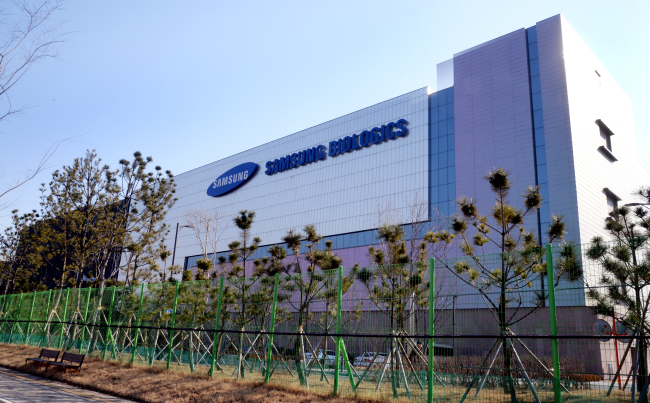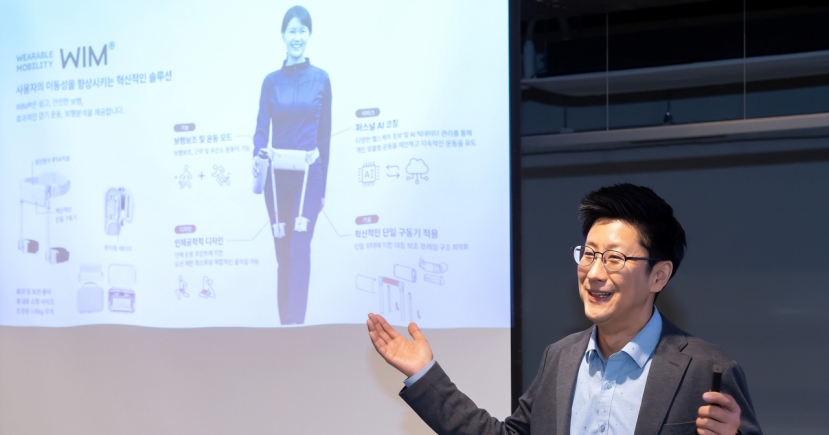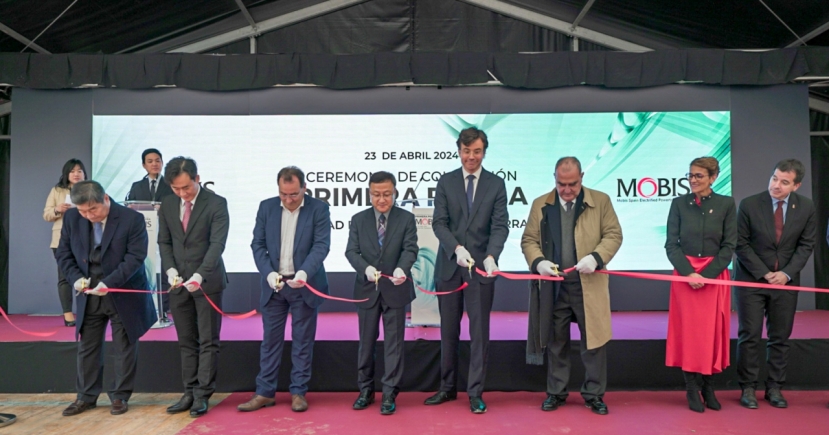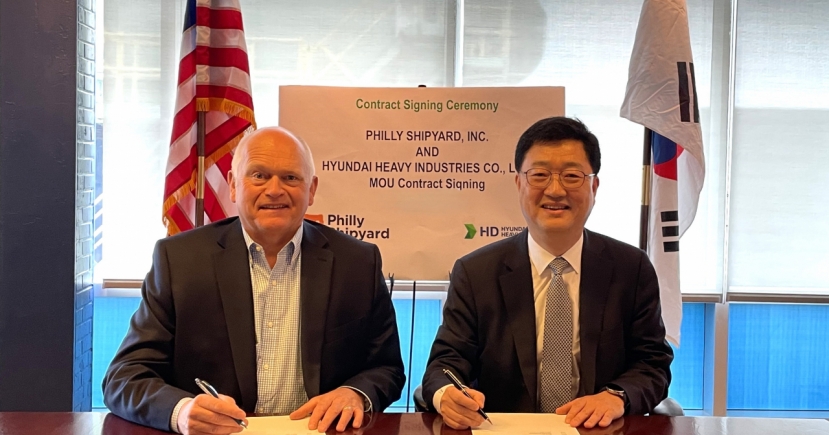Bio
Dreaming beyond Samsung, BioLogics shakes biopharma industry
[THE INVESTOR] SONGDO, Incheon -- Around 2,800 construction workers tirelessly move around 118,618 square meters of reclaimed land in Songdo, Incheon, to build the world’s single-largest biologic drug production facility for Samsung BioLogics, a core unit on which South Korea’s biggest conglomerate is pinning its future.
Having broken ground in November 2015, the five-story facility, equivalent to a 15-story apartment building, is scheduled for completion next year.
 |
Once completed, the plant is set to become the third manufacturing site for the Samsung subsidiary, which produces biologic drugs -- complex therapies based on living cells as opposed to chemicals -- on behalf of global pharmaceutical companies that place orders.
Samsung’s jump into the seemingly distant field of contract drug manufacturing had initially raised doubts. However, its unique background in hardware manufacturing has helped it to quickly build and operate high-tech drug production facilities able to produce quality drugs at low prices.
Speed, efficiency and systematic execution are some of the defining characteristics of Samsung BioLogics’ business model. Samsung’s first two production plants were each built within two to three years -- around twice as fast as the time that other industry players typically take to build similar facilities of their scale.
Much of this was possible given Samsung’s accumulated experience in designing and building semiconductor plants, including installing hygienic piping systems, super-clean water systems and clean rooms that are also required of biologics production plants, the company explained.
“A shorter construction time translates to savings on building costs, which in turns helps us offer our main services at more competitive prices. It also means we can expand our production capacity more quickly than others,” said Edward Kang, Samsung BioLogics’ spokesman, while touring the construction site.
The third plant upon its completion will house 12 15,000-liter bioreactors to boast a bioreactor capacity of 180,000 liters.
Together with its first and second plants which are already running, the third production facility is expected to drive up the company’s net manufacturing capacity to 360,000 liters, making it the largest biopharma contract manufacturing organization by capacity in the world.
Founded in 2011, Samsung BioLogics stands at the heart of Samsung Group’s foray into the field of biopharmaceuticals as it looks to new, promising sectors beyond its flagship electronics business. So far, it has poured in more than 3 trillion won ($2.68 billion) into Samsung BioLogics and its biosimilar making subsidiary Samsung Bioepis.
Six years into its business, Samsung BioLogics has fully booked long-term orders for its first and second plants, producing nine products for clients including Bristol-Myers Squibb and Roche. It also successfully completed an initial public offering in November 2016 amid high investor interest.
One hundred percent of its products are being exported. This is why its location in Songdo, the nearest city to Korea’s Incheon Airport, is important, as the fast delivery of packaged biologics drugs is critical.
Samsung BioLogics, which aims to supply quality drugs at competitive prices, can be seen as following the path of Samsung Electronics. The tech giant jumped into the semiconductor original equipment manufacturing business in the 1970s and later became a dominant player in the market.
However, there are huge differences between chipmaking and biopharmaceutical production.
Producing live cell drugs is a highly complex project that involves careful process planning, manufacturing science and technology. Designing a method to produce a particular drug exactly as required by a client, at maximum production efficiency, is a complicated task on its own, which Samsung BioLogics claims confidence in as a contract manufacturing organization
Becoming the world’s largest CMO by capacity, however, is not the ultimate goal of Samsung BioLogics.
As a biologic drug producer, it hopes to eventually tap into biologic drug sales and marketing, a trade that has long been dominated by global pharmaceutical companies. New drug development is not its future direction, contrary to the opinion of some market watchers.
“Asking us if we are going to develop a new drug is the same as asking Apple if they’re going to develop new mobile applications. Who develops apps? Startups,” said Kang.
“Likewise, global pharmaceutical giants purchase licenses of promising drug candidates from smaller drugmakers, similar to how tech firms acquire startups. As a production company, we plan to expand into the subsequent sales and marketing of biologic drugs, which requires huge amounts of capital, once our CMO business takes its seat,” he said.
Despite its ambitions, Samsung BioLogics has been facing market suspicions that the company was launched as part of the tech giant’s de facto leader Lee Jae-yong’s succession scenario.
Samsung C&T holds a majority of its shares, 43.4 percent, followed by Samsung Electronics with 31.5 percent. Lee holds 17.23 percent in Samsung C&T, which holds 4.1 percent in Samsung Electronics and 19.34 percent in Samsung Life Insurance -- two units at the apex of Samsung’s corporate governance.
Refuting such speculations, Samsung BioLogics said its business portfolio remains strong, fueled by rosy market prospects. Samsung BioLogics expects its CMO business to enjoy steady growth on the back of rising global demand for biologic drugs.
Aging populations more prone to chronic illnesses such as rheumatoid arthritis and cancer are growing. They are often treated by biologic drugs, believed to be more effective and to have less side effects.
“As of now, CMO production takes up around 25 percent of the world’s biologic drug production. We believe this will rise to around 50 percent over the coming years,” said Yoon Ho-yeol, vice president of Samsung BioLogics’ corporate business operation.
“Once commercial production at our second plant takes off, we expect our revenue to jump by as much as 30 to 50 percent,” Yoon said, referring to similar forecasts made by market watchers.
Inside Samsung BioLogics
In addition to Samsung’s capital strength and its systematic executional expertise, the CMO company has additional secret weapons -- highly skilled and educated biologics experts recruited from all around the world.
One of the most critical teams at the company is the manufacturing science and technology team in charge of transferring in a client’s drug production methods and technology, and manufacturing the biologic drugs on a larger scale at the Songdo-based facilities.
“We bring in a client’s exact production method for a particular drug and work to replicate the process for a mass-production setting at our own plants,” said Park Min-tae, who leads the cell culture product development division within the team.
Biologic medications are made using large quantities of living cells that have been genetically engineered to produce therapeutic proteins. The cells -- artificially grown inside bioreactors -- and the proteins they produce are highly sensitive and require careful culturing and purification processes for them to be turned into finalized drugs.
When the drugs have to be produced in large quantities, the process becomes even more complex.
Taking charge of this task, Samsung BioLogics’ manufacturing science and technology team works on replicating a drug’s original production steps under a laboratory setting. It starts out with growing small batches of cells and scales up production by moving them into bigger bioreactors to arrive at the optimal method that ensures quality and maximizes output.
Once the production process is deemed stable enough, the drug becomes ready for mass production at Samsung BioLogics’ plants, where the protein-generating cells will be incubated inside 15,000-liter bioreactors and purified to produce an active pharmaceutical ingredient.
“For our first product, it took us just six months to complete the tech transfer and arrive at the on-site operation stage,” Park said, recalling that its first client Roche -- which had harbored some skepticism about Samsung initially, considering its newcomer status in biologics production -- was impressed with the efficiency and quality of its execution.
In the future, Samsung BioLogics said it is even considering to offer its manufacturing science and technology development system as an independent service to small drugmakers seeking assistance in scaling up the production of new biologic drug substance they have developed inside a lab setting, to prepare it for potential commercialization.
The move would broaden the company’s business to include a specialized service in scale-up production technology, in addition to contract manufacturing which is essentially capped by its bioreactor capacity.
In addition to production, quality maintenance is also another priority for Samsung. Its quality control team consistently examines samples of all substances involved in the drug production process, from the initial development stage to the final product and filling and packaging.
In a nod to its roots in mechanics, Samsung BioLogics also runs a utility control center featuring an ultrawide screen filling an entire wall for monitoring the status of all the utilities running in its two plants, whether it is water purity levels or the air flow in its clean rooms.
“Visitors from major pharmaceutical companies and even the US Food and Drug Administration are often shocked and impressed by our state-of-the-art, wide-screen monitoring system which simply doesn’t exist in other drug production facilities,” said Bae Hyoung-woo, head of the utility operation team.
By Cho Chung-un and Sohn Ji-young/The Korea Herald(christory@heraldcorp.com) (jys@heraldcorp.com)
Park Han-na, staff reporter at The Investor, contributed to this article. -- Ed.








